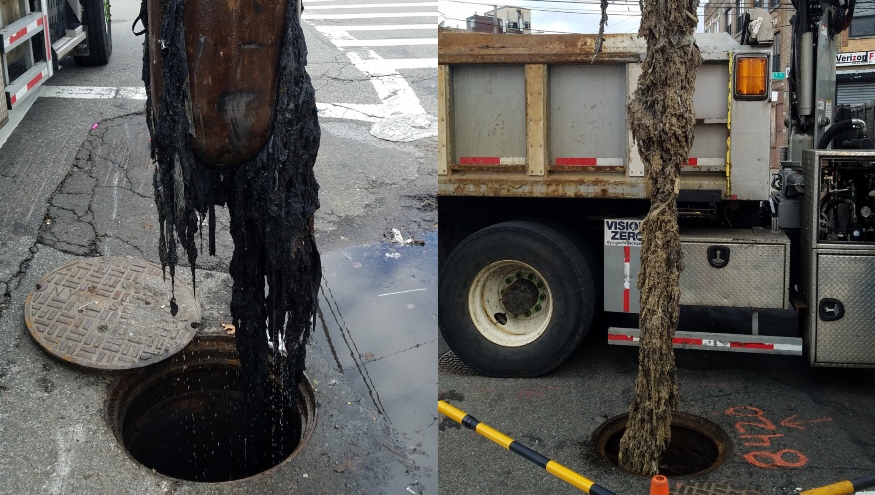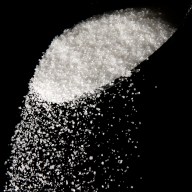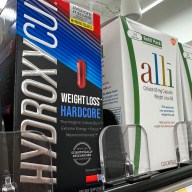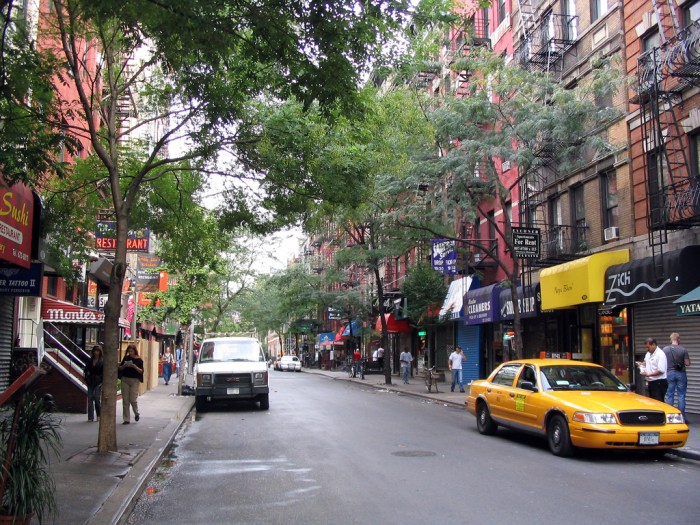New York City officials want the city’s sewer system to be fatberg free, and they need your help.
Trouble is brewing in the city’s sewer system in the form of “fatbergs,” a portmanteau of the words “fat” and “iceberg” to describe deposits of grease, wipes and other debris that clog up sewers and affect their operations.
You may remember hearing about the massive fatberg found in London from 2017, a 130-ton 210-foot long congealed mass that blocked up sewer pipes under the city.
Though New York City doesn’t have a fatberg to rival that one (yet), there are smaller ones that are still posing serious damage to the city’s waste management system.
To help prevent these fatbergs, the New York City Department of Environmental Protection (DEP) on Thursday launched a new public awareness campaign to inform New Yorkers how to properly dispose of waste.
New York City, with 8.6 million residents, could not exist without an effective wastewater treatment system and improperly disposed of wipes, grease and other debris impedes the ability of our system to properly do its job and protect public health,” said DEP Commissioner Vincent Sapienza in a statement. “This campaign will help to raise awareness of this important issue and remind New Yorkers to dispose of trash where it belongs – in a trash can.”
The fight against fatbergs: NYC DEP campaign
At the crux of the DEP campaign is the slogan “Trash it. Don’t flush it.” The PSA reminds New Yorkers that crease, wet wipes and other trash don’t belong in sewer pipes, as they can clog the system, cause sewer backups and prompt flooding.
The accumulation of grease and other debris in sewer pipes is responsible for 84 percent of all sewer backups in New York City, according to the department.
DEP spends nearly $19 million each year to clean clogged sewers, dispose of wipes and repair damaged machinery, per the city. Property owners could be burdened with more than $10,000 to repair household plumbing damaged by grease and wipes.
To prevent such fatbergs, the department is warning residents to “only flush the four P’s: Pee, Poop, Puke and toilet Paper.”

Toilet paper is made to break down almost immediately in the sewer system, but wipes — even those labeled as “flushable,” — do not. The increase in the wet wipe industry has been linked to costly city sewer repairs, and city officials say more wet wipe sales correlates with more sewer blockages, equipment damage, flooding and more. Officials also want to remind residents that tampons, sanitary pads and condoms should go in the trash as well.
But this debris still isn’t the city sewers’ biggest threat. Grease that is improperly poured down the drain is the number one cause of sewer blockages, according to the department. Officials advise New Yorkers to place grease in “sealed non-recyclable containers and discard with regular garbage.”
For city businesses that may have to dispose of grease, DEP enforces a regulation that requires food establishments to use a grease trap to protect the sewer system.
Still, the department will be featuring its anti-fatberg ads around the city at select subway stations and bus shelters, on trains, buses, television, and on social media. The campaign will run for the next four weeks and flyers can be downloaded and more information found at fatbergfree.nyc.
“With an aging, overburdened sewer system, we must be vigilant about what we send down the drain,” said Council Member Costa Constantinides, chair of the Committee on Environmental Protection, in a statement. “It’s important we let New Yorkers know the ramifications of sending wipes, oils, and other harmful materials through our beleaguered pipes.”



















